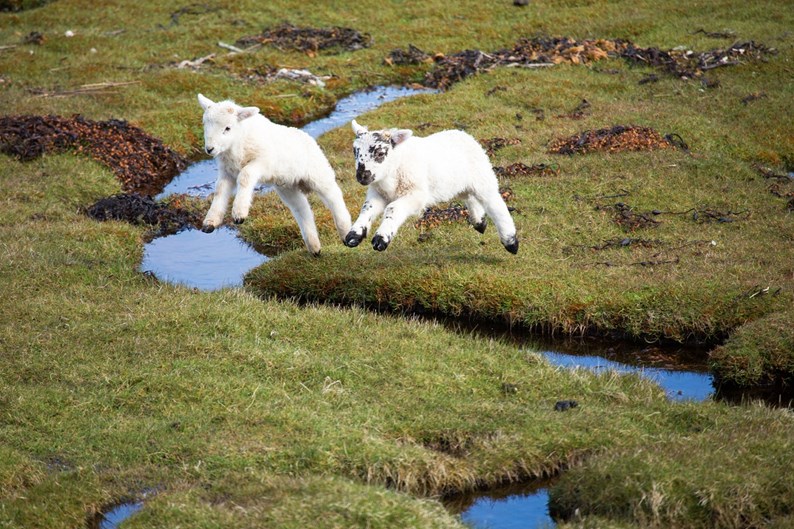Report calls for short leash for dogs – and owners

During the peak lambing season, a new report calls for more protection from dog attacks
The lambing season is a joyful time of year, with lambs frolicking in the fields a sign that Spring has arrived.
However, for farmers it can also be stressful – especially with the approach of the Easter weekend bringing an increase in visitors, many with dogs in tow, to the countryside.
Now, a new report by researchers at SRUC has called for changes to legislation – including a higher level of fines to be imposed for dog-related offences, and for guidance around livestock worrying to be reviewed.
The Land Reform (Scotland) Act 2003 and Scottish Outdoor Access Code (SOAC) outline the responsibilities of users and managers of the land, while a separate Dogs (Protection of Livestock) (Amendment) (Scotland) Act tackles the issue of out-of-control dogs attacking and worrying livestock.
The key recommendations of the report, which was produced following a workshop with countryside rangers, dog training experts and farmers among others, are to review the wording of the SOAC to reduce ambiguity and improve clarity. This includes removing the option of keeping a dog under ‘close control’ and using only the term ‘keeping it on a short lead’.
It suggests creating an easy-to-read version of the SOAC with less text and more images to increase overall engagement and comprehension, as well as materials for use in puppy training classes and the school curriculum.
In addition, it highlights the need to discourage the use of the phrase ‘right to roam’ and instead promote the term ‘responsible access’ and calls for more resources to implement, monitor and police the guidelines.
The researchers also suggest exploring the reintroduction of dog licensing, with separate licenses for working dogs and pets; increasing the level of fines or imposing anti-social behaviour orders and community service sentences for dog-related offences; and aligning the guidance for access to farmland more closely with that for land with crops and golf courses.
Co-author Dr Kate Lamont, a Behavioural Scientist at SRUC, said: “Across Scotland, from large lowland farms near urban settlements to crofts in remote parts of the Highlands and Islands, there is a recurrent problem of dogs negatively impacting on livestock. From out-of-control dogs roaming out of sight of their owners to urban dogs barking excitedly when they see livestock for the first time, the negative impact may vary but can have devastating results.
“The term ‘livestock worrying’ is often more than a sheep or cow feeling anxious about a dog - it can be bloody and brutal, with biting, chasing to the point of exhaustion, miscarriage and killing commonly reported.
“Many dog owners are caught out unawares, are apologetic and upset by their dog’s behaviour, and will take steps to avoid repetition. However, others angrily defend what they describe as their right to roam – not realising that their right is for responsible access.
“Farmers and crofters ask that dogs be kept away from livestock and, where that is not possible, that owners keep their dogs on a short lead if there is livestock nearby.”
For more information about the research work at SRUC, visit: www.sruc.ac.uk/research.
Posted by SRUC on 28/03/2024
